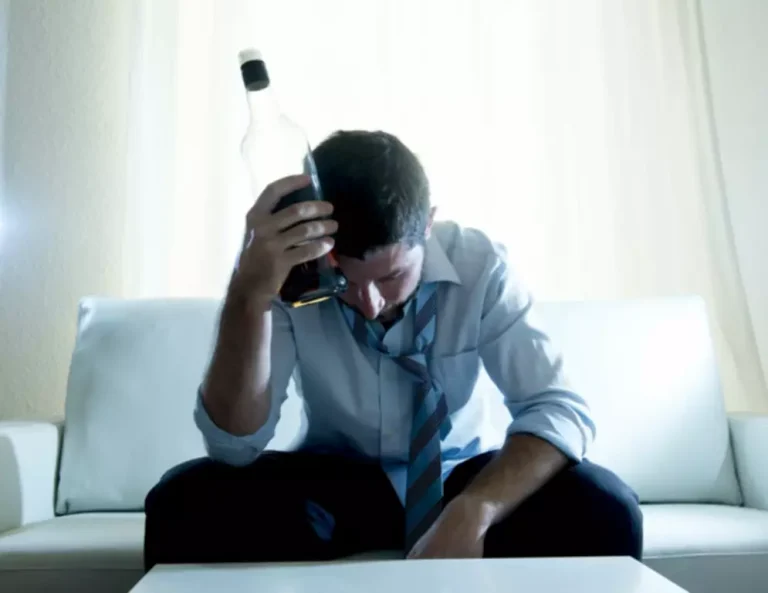If you have bipolar disorder, you are at a much greater risk of developing alcohol use disorder. Alcohol can also increase the sedative effects of any mood stabilizers being used to treat bipolar disorder. The combination of bipolar disorder and AUD can have severe consequences if left untreated. People with both conditions are likely to have more severe symptoms of bipolar disorder. Among people with bipolar disorder, the impact of drinking is noticeable. About 45 percent of people with bipolar disorder also have alcohol use disorder (AUD), according to a 2013 review.
Randomized controlled studies on pharmacological treatments of comorbid BD and AUD. Carbamazepine has been traditionally used in acute alcohol withdrawal to reduce the risk of seizures and ameliorate physical symptoms. However, there are no reliable data whether it is of any usefulness in the long-term treatment of BD + AUD. Carbamazepine is metabolized by the liver and can, by itself, induce an increase in liver transaminases (ALAT, ASAT, γGT) and, in rare cases, cause liver failure. It can be difficult to get the medication right with bipolar disorder because each person is different and may respond differently to medications.
Treatment is effective and helps many people manage their co-occurring disorders. The best course is a combination of medications and therapy, along with supplemental treatments such as holistic care and alternative, creative therapies. There are many reasons to avoid drinking if you have bipolar disorder, including the potential interactions with medications.
The Relationship between Bipolar Disorder and Alcohol: Exploring the Effects and Risks
- The first is the “single-disorder paradigm,” in which patients are encouraged to think of themselves as having a single disorder, i.e., “bipolar substance abuse,” rather than trying to tackle two discrete disorders at once.
- However, this self-medication approach often backfires, leading to a vicious cycle of worsening symptoms and increased alcohol dependence.
- All condition, treatment and wellness content is medically reviewed by at least one medical professional ensuring the most accurate information possible.
- No statistically significant treatment differences were detected in drinking or mood outcomes.
- The most noticeable signs of bipolar disorder in children and teenagers may be severe mood swings that aren’t like their usual mood swings.
Like a volatile cocktail, the combination of bipolar disorder and alcohol consumption creates a dangerous mixture that can amplify symptoms, complicate treatment, and lead to dire consequences for those affected. This complex relationship between bipolar disorder and alcohol use has long been a subject of concern for mental health professionals and researchers alike. Understanding the intricate interplay between these two conditions is crucial for effective treatment and support of individuals grappling with this dual challenge. The evidence for Assertive community treatment (AST) that has been examined in two RCTs is inconclusive, with one study showing a reduction of alcohol use, the other not when compared to standard clinical case management. Both studies included also patients with other major mental health disorders, such as MDD and schizophrenia; thus, both do not supply information exclusively about changes in the course of BD (96, 97).
BD is a highly genetic disorder, with a family history in about 80% of patients. Valproic acid is a CNS depressant that can have similar effects to alcohol. Using both at the same time can increase how to store urine for drug test the effect, with potentially serious consequences.
Alcohol use has been shown to increase the severity of bipolar disorder, its symptoms and its complications. People who struggle with any substance use disorder and have bipolar are less likely to stick with their treatment. These difficulties, the possible side effects of the drugs, and the features of bipolar disorder itself can make it hard for a person to keep to a treatment plan.
Klonopin and ADHD: Understanding the Connection, Benefits, and Risks
Conversely, having bipolar disorder may make you more likely to have an alcohol use disorder. If you’ve lost control over your drinking or you misuse drugs, get help before your problems get worse and are harder to treat. Seeing a mental health professional right away is very important if you also have symptoms of bipolar disorder or another mental health condition. Bipolar disorder is defined by mood episodes that fluctuate between highs and lows. When coupled with alcohol use disorder, symptoms of either condition may worsen. There are a variety of treatment options, including talk therapy and medication, to treat these conditions separately or as they co-occur.
Risk factors
Three percent fulfilled criteria for alcohol dependence and 1.8% for abuse (4). In a prior survey, looking at lifetime prevalence rate, the same group reports on similar numbers for BD, and 9.9 and 8.5% for alcohol abuse and dependence, respectively (5). These numbers are in a similar range as in other European countries; while prevalence rates from the US are much higher, both for BD and substance abuse/dependence (6). Whereas numbers for legal substances, e.g., alcohol, are considered as relatively robust and reproducible, many cases of illicit drug use remain undetected in patients with BD. Cannabis is likely to be second after alcohol as substance of abuse in BD alcohol and brain fog patients, affecting approximately one quarter of bipolar patients (7).
Some theorize that when AUD appears first, it can maverick house sober living trigger bipolar disorder. Others have suggested that bipolar and AUD may share genetic risk factors. By Geralyn Dexter, PhD, LMHCDexter has a doctorate in psychology and is a licensed mental health counselor with a focus on suicidal ideation, self-harm, and mood disorders.
If you have bipolar disorder, AUD, or both, talk to your doctor about treatment options that will work for you. In the United States, about 4.4 percent of adults will experience bipolar disorder at some point in their lives, according to the National Institute of Mental Health. A bipolar diagnosis is described as type 1 or 2, depending on the severity of symptoms. Combining alcohol with mood stabilizers is not recommended, as the interactions can cause increased drowsiness, memory issues, impaired judgment, or liver problems. For example, some people may develop bipolar disorder first, while in others, AUD may appear first.
Depending on which drugs you take for bipolar disorder, alcohol may interfere with their ability to work correctly. If you take lithium for mood stabilization, there is a risk of developing toxic levels of the drug in your body. The risk of toxic lithium levels is higher if you drink too much, as alcohol causes dehydration. Not everyone with this condition will be suicidal, but it is a real risk. Those with both bipolar and a substance use disorder are more likely to commit suicide.
The short answer is yes, alcohol can significantly exacerbate bipolar symptoms and interfere with treatment efficacy. It’s important to be aware of this connection if you struggle with bipolar disorder. It may be tempting to drink in order to manage symptoms and mood changes, but the risks are high.
Seeking Professional Help and Support for Dual Diagnosis
People with bipolar disorder and alcohol use disorder should work closely with a healthcare provider to determine the best medication regimen to manage symptoms. Bipolar disorder and alcohol use disorder (also called alcoholism and alcohol addiction) frequently occur together. It is estimated that 40% to 70% of individuals with bipolar disorder will be diagnosed with AUD during their lifetimes. Although the connection between these two disorders isn’t entirely clear, some factors seem to contribute. Sometimes what seems to be bipolar disorder might really be another disorder.


